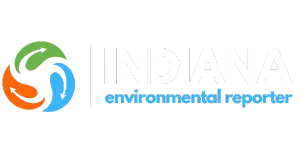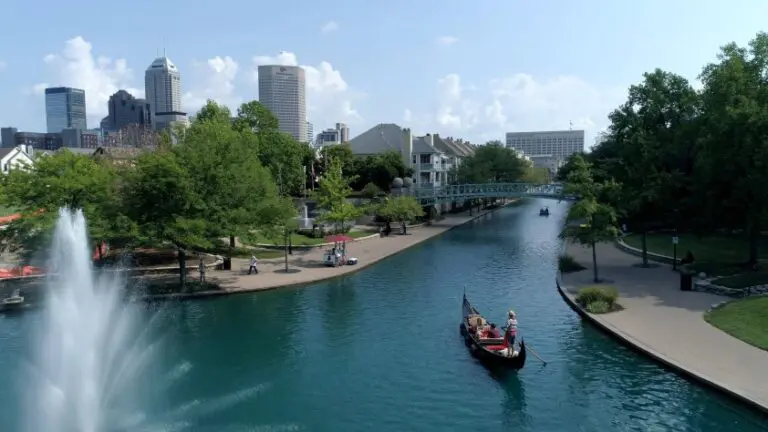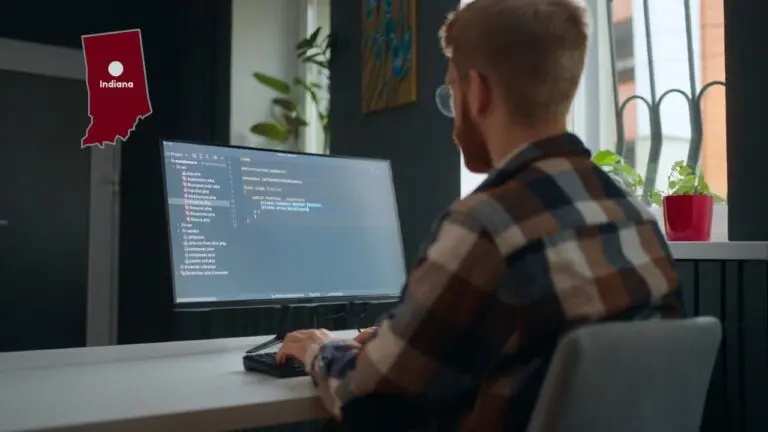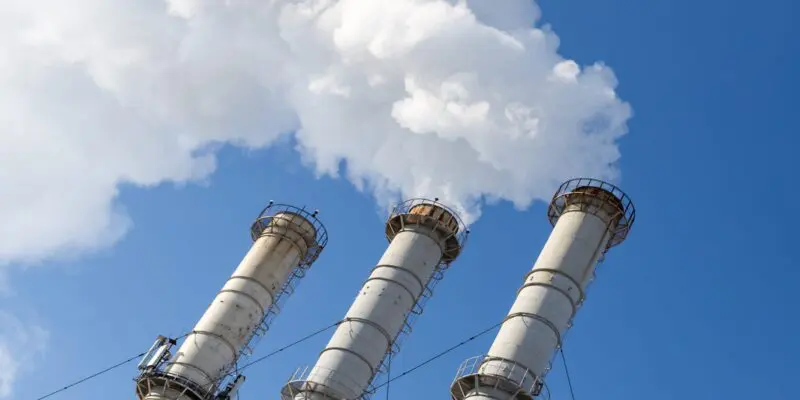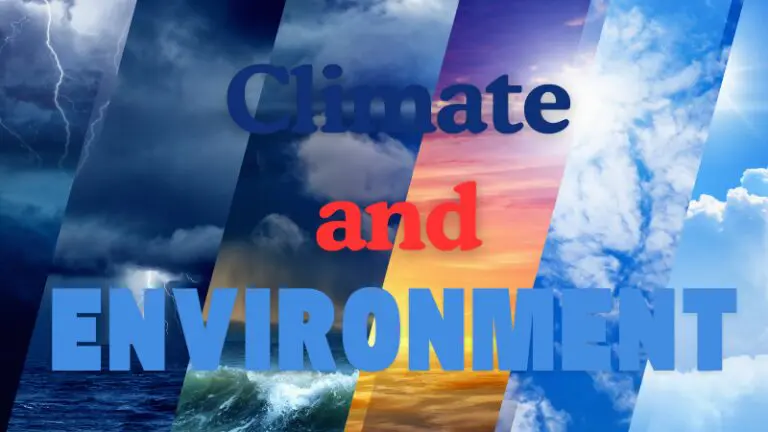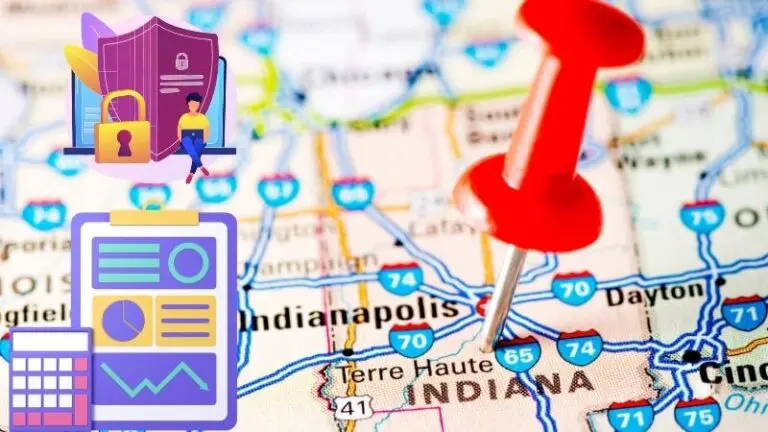The reduction of greenhouse gas emissions is the goal of an Indiana University and Hoosier government partnership that also aims to help communities measure and manage the gases that contribute to climate change.
Nine Hoosier communities and IU have teamed up to carry out such projects this year. This is the third phase of a program started by IU’s Environmental Resilience Institute.
Explained Andrea Webster, who serves as ERI’s implementation manager.
“We give them all these things, so they can do climate work, prepare for climate change and reduce emissions.”
Program participants in 2021 are Bloomington, Carmel, Elkhart, Fort Wayne, Gary, Goshen, Richmond, West Lafayette and Zionsville.
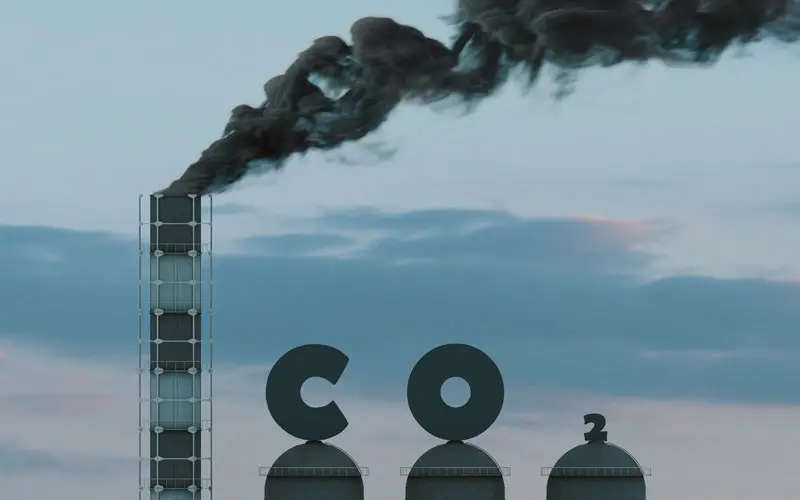
These Resilience Cohort cities will receive technical assistance, consulting and training to implement one to three projects that support actions established in community-wide greenhouse gas reduction plans created under the program in 2020.
The city of Goshen has been a part of the cohort since 2019 and has had a positive experience with the program, explained Aaron Sawatsky-Kingsley, who serves as the city’s director of the department of environmental resilience and the city forester.
“It’s been really, really positive,”
He said.
“I’m in awe of ERI’s vision. First, to get diverse communities in Indiana to work on this and to have the expertise and skills that have guided us. There’s no way we would be managing this work without ERI. They have been essential and really, really good to work with.”
The program has helped the city by providing background support and expertise in the creation of emissions inventories as well as working toward climate action plans, he said. The city now has the goal of having zero emissions by 2035.
“Beyond that, the cohort has provided the opportunity to work with a dozen other communities working on the same projects,”
Sawatsky-Kingsley said.
“We’re not working alone. We have other folks to talk to. We’ve gotten lots of expertise and a lot of camaraderie and professional support from each other. Indiana is very lucky to have ERI.”
Projects throughout the initiative will concentrate on lowering obstacles to solar advancement, efficient wastewater treatment and the creation of electric vehicle-friendly communities.
“After a couple years of helping our cohort members gather data and create emissions reduction plans, we are excited to assist these local governments with tangible actions that reduce greenhouse gases,”
Webster said.
“Fully implementing climate action plans will take years of effort and sustained commitment, but some of the benefits, such as green jobs, lower utility bills and improved air quality, can be realized much sooner. By prioritizing emissions reduction today, our Hoosier towns, cities and counties are taking critical steps to combat climate change and create more livable, equitable and resilient communities.”
Launched in 2019 through a partnership between Sustain IU and ERI, the Resilience Cohort program is part of the IU Prepared for Environmental Change Grand Challenge initiative. The program matches Indiana local governments with the tools, training, and expertise needed to measure and reduce local greenhouse gas emissions.
“More than anything, the Resilience Cohort has been a successful model to provide needed technical capacity and support and to establish relationships that enable Indiana’s local governments to strategically reduce carbon emissions,” Webster said. “The program has successfully partnered with a range of communities, both rural and urban, and cities with elected leadership from both political parties, and cities where elected leadership has changed during the course of the program.”
In addition to helping cities enact carbon-cutting projects in 2021, the Resilience Cohort is assisting a new group of communities on the path toward greenhouse gas reduction. These first-year participants include Cedar Lake, Chesterton, East Chicago, Highland, Hobart, Huntington, Indianapolis, Lafayette, Lake County, Lake Station, LaPorte, LaPorte County, Merrillville, Munster, New Albany, New Castle, Porter County, Schererville, South Bend, Terre Haute, Tippecanoe County and Valparaiso.
Local governments from these communities will be conducting greenhouse gas inventories and will receive technical assistance from ICLEI–Local Governments for Sustainability, a nonprofit organization that specializes in emissions management and climate action. They will work their way toward planning and implementation.
By the end of the year, inventories from communities representing 46% of the state’s population will have been created through the Resilience Cohort. In the first two years of the program, 17 Indiana cities, towns, and counties completed one or more community-scale greenhouse gas inventories. In addition, 11 communities have used this data to develop climate action plans or other long-range plans aimed at reducing heat-trapping gases.
If your community is interested in signing up, there’s still time to do so. Contact ERI for more information.
“It’s really fabulous seeing cities in Indiana taking steps to reduce greenhouse gases … We should be really proud as a state,” Webster added.
Funding for the 2021 Resilience Cohort program is provided by the McKinney Family Foundation and the Duke Energy Foundation. Additional support is provided by the Great Plains Institute and the national SolSmart program, funded by the U.S. Department of Energy.
Related Posts:
- Online Tool Empowers Hoosier Communities to Combat…
- How Indiana Became a Magnet for Data Center Projects in 2025
- 12 Things To Do In Indianapolis This Weekend With…
- Stranger Things and Indiana - How the Hoosier State…
- The Hoosier Hysteria - Basketball’s Undying Legacy…
- 30 Fascinating Facts About Indiana - Discover the…
